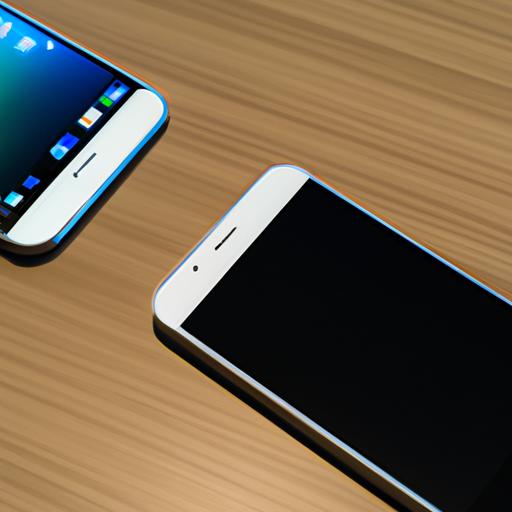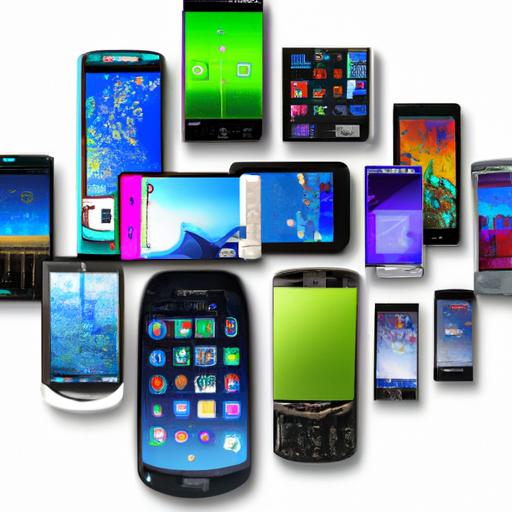When it comes to smartphones, choosing the right operating system (OS) is crucial. Your smartphone OS determines the user experience, available features, and overall functionality of your device. With numerous options available in the market, it can be overwhelming to decide which one is the best fit for your needs. In this article, we will explore the top smartphone operating systems – Android, iOS, and Windows Mobile – and help you make an informed decision.

Comparison of the Top Smartphone OS
Android
Android, developed by Google, is the most widely used smartphone OS globally. It offers a plethora of features and functionalities that cater to a diverse user base. With its customizable interface and extensive app ecosystem, Android provides users with the freedom to personalize their devices. Its market share dominance makes it a popular choice among smartphone enthusiasts.
iOS
iOS, the operating system powering Apple devices, is known for its seamless integration with hardware and optimized performance. With a sleek and intuitive user interface, iOS offers a user-friendly experience. The iOS app store is renowned for its wide selection of high-quality apps, making it a favorite among those seeking a curated app experience.
Windows Mobile
Although not as popular as Android and iOS, Windows Mobile by Microsoft deserves mention. It provides a unique user interface and integrates well with other Windows devices. Windows Mobile offers a familiar experience for those accustomed to using Microsoft products and services.
Key Factors to Consider When Choosing a Smartphone OS
User interface and customization options
The user interface plays a crucial role in your smartphone experience. Android provides a highly customizable interface, allowing users to personalize their devices to suit their preferences. On the other hand, iOS offers a sleek and cohesive interface that is intuitive and easy to navigate. Windows Mobile provides a unique tile-based interface, which some users find appealing.
App availability and ecosystem
The availability of apps is essential for maximizing the potential of your smartphone. Android’s Play Store boasts a vast collection of apps, ranging from games to productivity tools. iOS, with its stringent app review process, ensures a curated selection of high-quality apps. While Windows Mobile may have a smaller app store, it caters to specific user needs and offers integration with Microsoft services.
Security and privacy features
Protecting your data and maintaining privacy is crucial in today’s digital world. Android provides robust security features, including regular security updates and app permissions control. iOS is renowned for its strong security measures, strict app review process, and data encryption. Windows Mobile also offers security features, albeit with a smaller user base, making it a less attractive target for hackers.
Device compatibility and updates
Considering the compatibility of the OS with your device is important. Android offers a wide range of device options from various manufacturers, ensuring compatibility with different budgets and requirements. iOS, on the other hand, is exclusive to Apple devices, guaranteeing optimal performance and software updates. Windows Mobile has limited device options, primarily available on Microsoft devices.
Pros and Cons of Each Top Smartphone OS
Android
Advantages:
- Customizable interface and extensive personalization options.
- Vast app selection and compatibility with a wide range of devices.
- Integration with Google services and third-party apps.
Disadvantages:
- Fragmentation due to different device manufacturers and variations in software versions.
- Security concerns due to the open-source nature of the OS.
iOS
Advantages:
- Seamless integration with Apple hardware for optimal performance.
- High-quality app selection and enhanced security measures.
- Regular software updates and long-term support for devices.
Disadvantages:
- Limited customization options compared to Android.
- Restricted compatibility with non-Apple devices.
Windows Mobile
Advantages:
- Familiar interface for Windows users.
- Integration with Microsoft services and devices.
Disadvantages:
- Limited app selection compared to Android and iOS.
- Lack of popularity may result in limited developer support and updates.
Frequently Asked Questions (FAQ) about Top Smartphone OS
Which smartphone OS is the most secure?
Both iOS and Android have robust security measures in place. However, iOS is often perceived as more secure due to its closed ecosystem and strict app review process.
Can I switch between smartphone OS?
Switching between smartphone OS can be challenging as it often requires switching to a different device. Android allows more flexibility in terms of switching, while iOS users may face limitations due to hardware exclusivity.
How often are updates released for each OS?
Android updates are released by different manufacturers, resulting in variation in frequency. iOS provides regular updates for all compatible devices. Windows Mobile updates are less frequent due to the platform’s diminishing popularity.
Conclusion
Choosing the right smartphone OS is essential for a satisfying user experience. Android, iOS, and Windows Mobile offer distinct features and cater to different user preferences. Consider factors such as user interface, customization options, app availability, security features, and device compatibility before making your decision. Ultimately, the best OS for you will depend on your individual needs and preferences. Whether you prioritize customization, app selection, or a seamless experience, there is a top smartphone OS that will meet your requirements.
